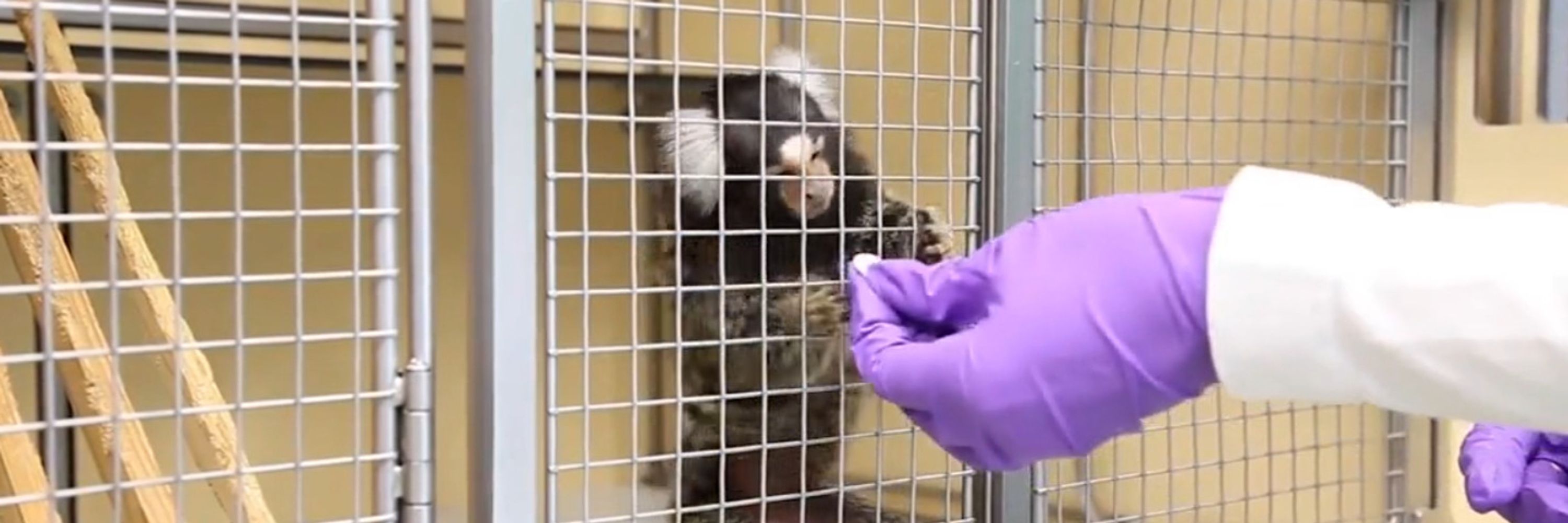
Jean Laurens
@jeanlaurens.bsky.social
Neuroscientist - Vestibular system, Spatial navigation - Group leader at the Ernst Strüngmann Institute for Neuroscience, Frankfurt, Germany.
In the end, even basic brain connectivity is different between rodents and primates, with primates having more specialized, sparsely connected brain regions.
academic.oup.com/cercor/artic...
academic.oup.com/cercor/artic...

November 11, 2025 at 3:54 PM
In the end, even basic brain connectivity is different between rodents and primates, with primates having more specialized, sparsely connected brain regions.
academic.oup.com/cercor/artic...
academic.oup.com/cercor/artic...
To me, this reveals that most of our subjective experience of the world is driven by accurate, long distance vision.
Which rodents don't have - rats visual acuity is 1/30 to 1/60 of human's.
Which rodents don't have - rats visual acuity is 1/30 to 1/60 of human's.
November 11, 2025 at 3:45 PM
To me, this reveals that most of our subjective experience of the world is driven by accurate, long distance vision.
Which rodents don't have - rats visual acuity is 1/30 to 1/60 of human's.
Which rodents don't have - rats visual acuity is 1/30 to 1/60 of human's.
And then seeing again.
For me, this study of Marmoset hippocampus nails it. Primates don't have 'place cells' like rodents do, instead hippocampal cells encode where the monkeys look.
www.nature.com/articles/s41...
For me, this study of Marmoset hippocampus nails it. Primates don't have 'place cells' like rodents do, instead hippocampal cells encode where the monkeys look.
www.nature.com/articles/s41...

Primacy of vision shapes behavioral strategies and neural substrates of spatial navigation in marmoset hippocampus - Nature Communications
How diurnal primates develop exploration-navigation strategy and how the physiology of primate hippocampus is shaped in navigation are not fully understood. Here authors show that marmosets adapted th...
www.nature.com
November 11, 2025 at 3:42 PM
And then seeing again.
For me, this study of Marmoset hippocampus nails it. Primates don't have 'place cells' like rodents do, instead hippocampal cells encode where the monkeys look.
www.nature.com/articles/s41...
For me, this study of Marmoset hippocampus nails it. Primates don't have 'place cells' like rodents do, instead hippocampal cells encode where the monkeys look.
www.nature.com/articles/s41...
Seeing 😁
Ok, a bit more seriously, here is one example where Marmosets (and primates in general) vastly outperform rats at object recognition, especially when it involves mental rotation:
www.sciencedirect.com/science/arti...
Ok, a bit more seriously, here is one example where Marmosets (and primates in general) vastly outperform rats at object recognition, especially when it involves mental rotation:
www.sciencedirect.com/science/arti...

Marmoset core visual object recognition behavior is comparable to that of macaques and humans
Among the smallest simian primates, the common marmoset offers promise as an experimentally tractable primate model for neuroscience with translationa…
www.sciencedirect.com
November 11, 2025 at 3:38 PM
Seeing 😁
Ok, a bit more seriously, here is one example where Marmosets (and primates in general) vastly outperform rats at object recognition, especially when it involves mental rotation:
www.sciencedirect.com/science/arti...
Ok, a bit more seriously, here is one example where Marmosets (and primates in general) vastly outperform rats at object recognition, especially when it involves mental rotation:
www.sciencedirect.com/science/arti...
I’d be the first to switch from NHPs to humans if I could decide where to record and do it under proper lab conditions.
And I might even see the day when brain electrodes are completely safe, and I can record from healthy volunteers.
But we’re not there yet (and it will take some 🐵s to get there).
And I might even see the day when brain electrodes are completely safe, and I can record from healthy volunteers.
But we’re not there yet (and it will take some 🐵s to get there).
November 3, 2025 at 11:44 AM
I’d be the first to switch from NHPs to humans if I could decide where to record and do it under proper lab conditions.
And I might even see the day when brain electrodes are completely safe, and I can record from healthy volunteers.
But we’re not there yet (and it will take some 🐵s to get there).
And I might even see the day when brain electrodes are completely safe, and I can record from healthy volunteers.
But we’re not there yet (and it will take some 🐵s to get there).
I’m well aware of single-neuron recordings in human patients; but to date, they’ve been very restricted in terms of where you can record and under what conditions (and data quality, although Neuropixels and other electrodes could indeed change that dramatically)...
November 3, 2025 at 11:44 AM
I’m well aware of single-neuron recordings in human patients; but to date, they’ve been very restricted in terms of where you can record and under what conditions (and data quality, although Neuropixels and other electrodes could indeed change that dramatically)...
Such as which ones?
November 3, 2025 at 6:25 AM
Such as which ones?
...and the initial technology was largely developed by working with non-human primates 🐒.
#animalresearch
#animalresearch
October 28, 2025 at 3:45 PM
...and the initial technology was largely developed by working with non-human primates 🐒.
#animalresearch
#animalresearch
What a timely coincidence: my lab recorded our first neurons from that region this week!
So, long live the HD cortex! 😁😉
Cheers authors! @apeyrache.bsky.social @desdemonafricker.bsky.social
So, long live the HD cortex! 😁😉
Cheers authors! @apeyrache.bsky.social @desdemonafricker.bsky.social
October 17, 2025 at 2:38 PM
What a timely coincidence: my lab recorded our first neurons from that region this week!
So, long live the HD cortex! 😁😉
Cheers authors! @apeyrache.bsky.social @desdemonafricker.bsky.social
So, long live the HD cortex! 😁😉
Cheers authors! @apeyrache.bsky.social @desdemonafricker.bsky.social
Reposted by Jean Laurens
Of course. It’s extraordinarily that we even need to have this discussion - again - I despair.
September 6, 2025 at 5:27 PM
Of course. It’s extraordinarily that we even need to have this discussion - again - I despair.

